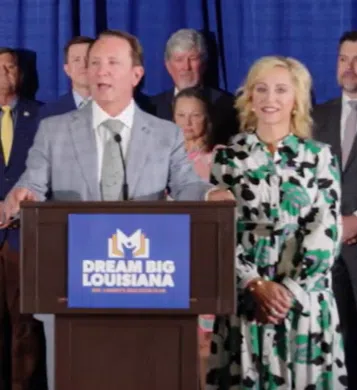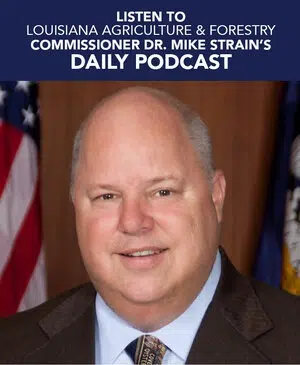
Governor Jeff Landry and First Lady Sharon Landry. June 19, 2024.
Louisiana residents have a right to request information under the state constitution, and though the governor has legal avenues to deny those requests, President of Public Affairs Research Council Dr. Steven Procopio says some of the denials from Governor Jeff Landry’s office either don’t apply or aren’t legal.
“There are a lot of… curious might be one way to put it, or unfounded exemptions that were being cited [by Landry’s office] in order to stop people from getting information that they wanted,” he explains.
For example, Procopio says, Landry’s office denied records based on legislative privilege and deliberative process. Procopio explains that legislative privilege isn’t applicable to the governor, and the deliberative process exemption was revoked under former governor Bobby Jindall and has yet to be successfully reinstated. Procopio adds that Landry’s office only had 65 information requests in his first few months in office and should have been able to respond to all of them.
“Given that they’ve added more staff, given that it [the amount of records requests] wasn’t as high of a level as we were led to believe, then this shouldn’t be used as an excuse to try to reduce the citizens’ rights to these records,” he says.
Procopio stresses that the governor has legal avenues to refuse information, but says that Landry’s office can’t try to invoke just anything to keep records out of the public eye. Procopio says freedom of information is important since, “You can’t hold your government officials accountable if you don’t know what they’re doing or if you only hear the things that they want to tell you. So you need to have an exchange of information. And citizens have that right, and it’s in our constitution.”
Landry says such restrictions are necessary to allow officials to speak to each other without fear of those conversations becoming public or weaponized.







Comments